How a mistake in a press statement led to the fall of the Berlin Wall
What it was like growing up in the volatile nation? William Cook revisits old family haunts and talks to Germans about the changes that have taken place in the past three decades

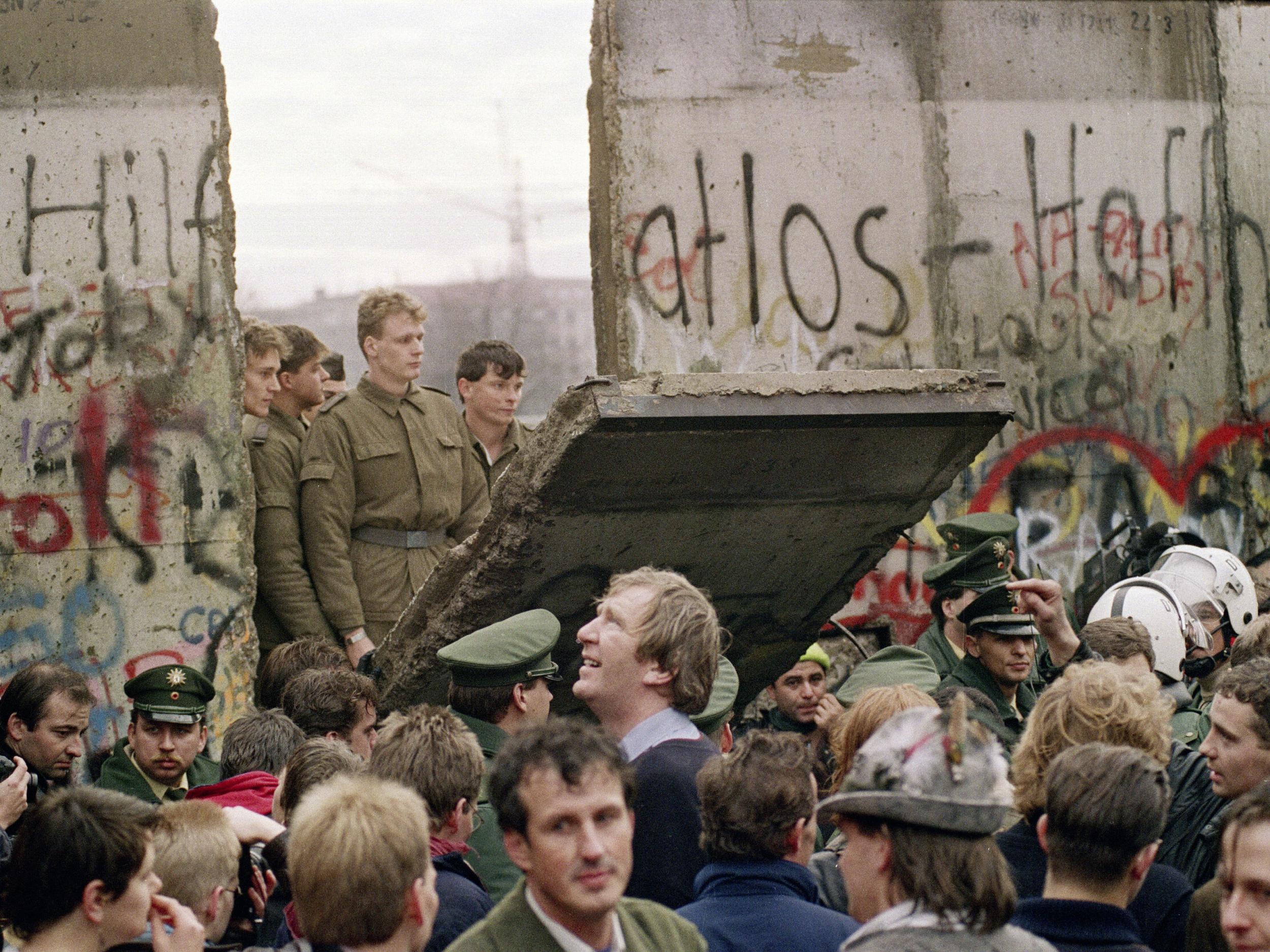
In a conference room in Berlin, around the corner from Potsdamer Platz, a German journalist called Peter Brinkmann is telling me how he helped bring down the Berlin Wall. It’s a story I’ve heard before, but never from the horse’s mouth, and it’s thrilling to hear it from the man himself, 30 years on. Brinkmann, a West German, was working in East Berlin for the West German newspaper Bild when, on 9 November 1989, he was summoned to a press conference by East Germany’s ruling Socialist Unity Party (SED). He sensed something special was afoot. That summer Austria and Hungary had opened the border between their countries, giving East Germans an escape route – via Czechoslovakia into Hungary, and on into Western Europe. Now that the Czech government had closed their border, in a bid to block this route, East Germans were taking to the streets, demanding the right to travel.
To quell these growing protests, the SED decided to announce that East Germans would henceforth be allowed to travel directly to West Germany provided they had a passport, something very few East Germans possessed. On paper, it seemed a clever plan. By giving East Germans the right to travel, the SED would take the heat out of the demonstrations, safe in the knowledge that the vast majority of citizens would have to apply for passports, a lengthy bureaucratic process which the government could control.
There was only one problem: the man they chose to make the announcement, Günter Schabowksi, hadn’t been at the relevant meeting. He hadn’t even read the press release. And so when he read it out, at the press conference, he was just as surprised as the attendant journalists. In the resulting pandemonium, the crucial detail about passports was forgotten. When Brinkmann asked when East Germans could travel, Schabowksi replied: “Immediately, I suppose.”
“It was a great mistake,” says Brinkmann. As he explains, the plan was to open only one border crossing, in the south of the GDR, far from Berlin. The consequences were monumental. The news was broadcast on West German TV that evening and seen by millions of East Germans (strictly forbidden, but common practice all the same) and as darkness fell thousands of East Berliners flocked to the six checkpoints along the Berlin Wall, demanding to be let through.
For these East Berliners, this was an action fraught with danger. More than a hundred people had been killed while trying to escape across the Berlin Wall, the latest only a few months before. If just one border guard had opened fire, history might have taken a different turn. However the border guards were unprepared for such huge crowds, and confused by Schabowski’s muddled statement, and so they opened the barriers and let the people through.
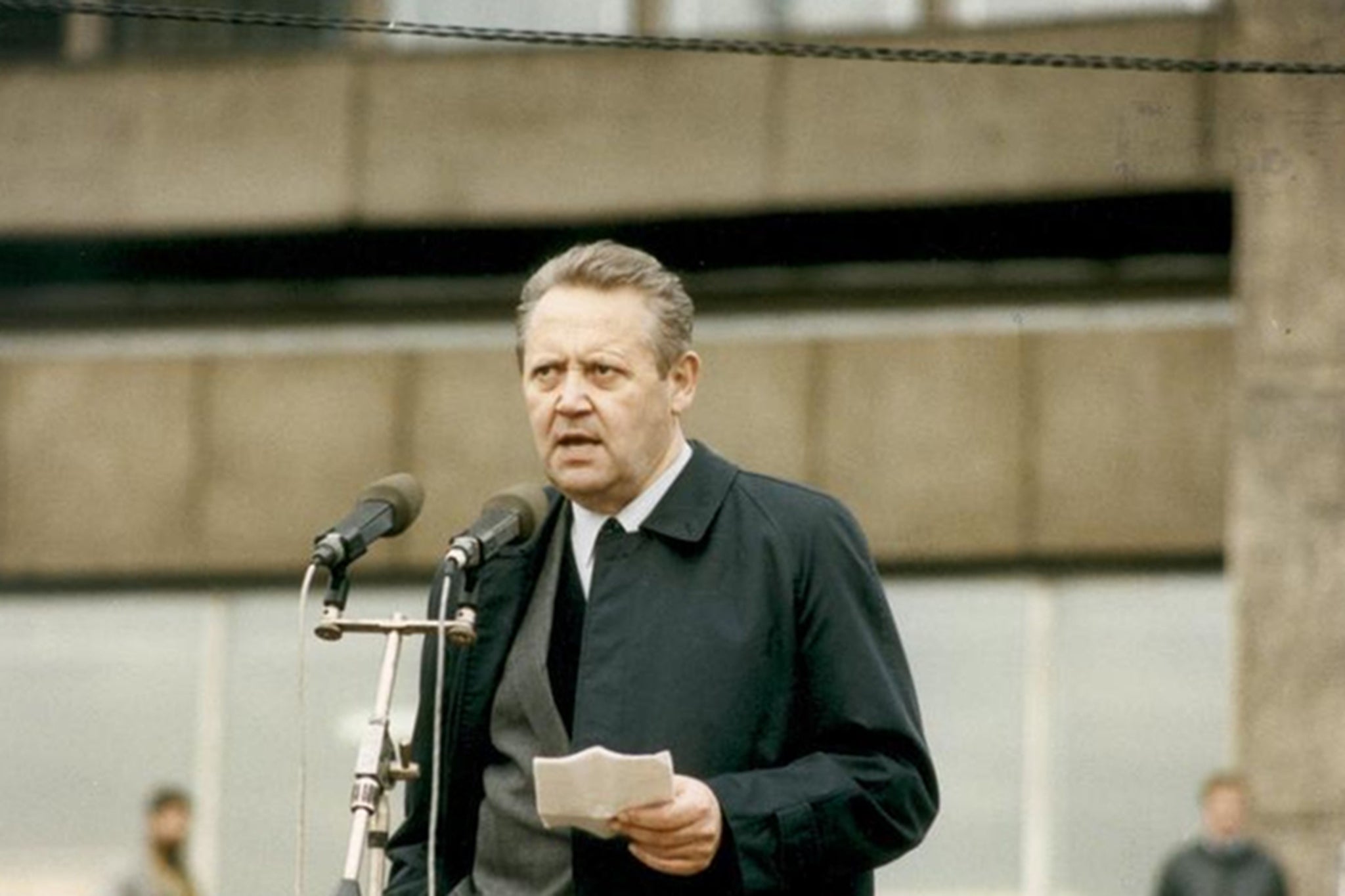
Brinkmann’s acute question, combined with Schabowski’s lack of preparation, started a chain reaction which the SED was unable to control. Within a year, Germany was reunified and the Cold War was at an end. But although that chaotic press conference was the tipping point, this peaceful revolution didn’t begin in Berlin on 9 November. It started on 7 October, in an obscure East German town called Plauen. It was there that I began my recent journey around the former East Germany. I wanted to find out about what happened in the weeks that led to the fall of the Berlin Wall (what Germans call the Mauerfall), but most of all I wanted to find out more about what’s happened since – and how those former East Germans feel today. Was reunification everything they’d dreamed of, or has it been a disappointment?
They just wanted to express their dissatisfaction with the political circumstances. No press freedom, no right to vote, the bad economic situation
In a cosy bierstübe in Plauen, Andrea Sachs is reminiscing about the night the Peaceful Revolution started, 30 years ago, in her quiet hometown. A local man called Jorg Schneider had typed out a rudimentary flyer, asking people to come out to the streets to protest against the government. He’d run off a few hundred copies and posted them all over town. In West Germany this would be no big deal, but in East Germany it was an imprisonable offence. Even attending such a demonstration was perilous. Yet 15,000 people took to the streets, out of a population of just 65,000. “They just wanted to express their dissatisfaction with the political circumstances,” says Andrea. “No press freedom, no right to vote, the bad economic situation.”
The police were out in force, and they sent for army reinforcements, but like those border guards a month later, they were unprepared for such huge numbers and powerless to stop them. The news spread throughout East Germany, and on 9 October a big demonstration took place in Leipzig, which was reported by the western media. Yet there were no western journalists here in Plauen and so Leipzig was recognised as the birthplace of the Peaceful Revolution.
Never mind. It’d be nice if Plauen received a few more plaudits, particularly for the heroic Herr Schneider, who may well have started the whole process, but the most important thing is that it happened. But why did it happen here? Plauen is a sleepy place, in a forgotten corner of East Germany, close to the Czech and West German borders. During the Cold War you needed special permission to even visit this borderland, so Plauen (once a busy mill town) became a backwater, especially neglected – even by the standards of the GDR. However its proximity to West Germany meant its residents could watch West German TV, and its proximity to the Czech border put it on the route for East Germans fleeing to Hungary, and on into Austria. As more and more people took this route, Plauen found itself centre stage.
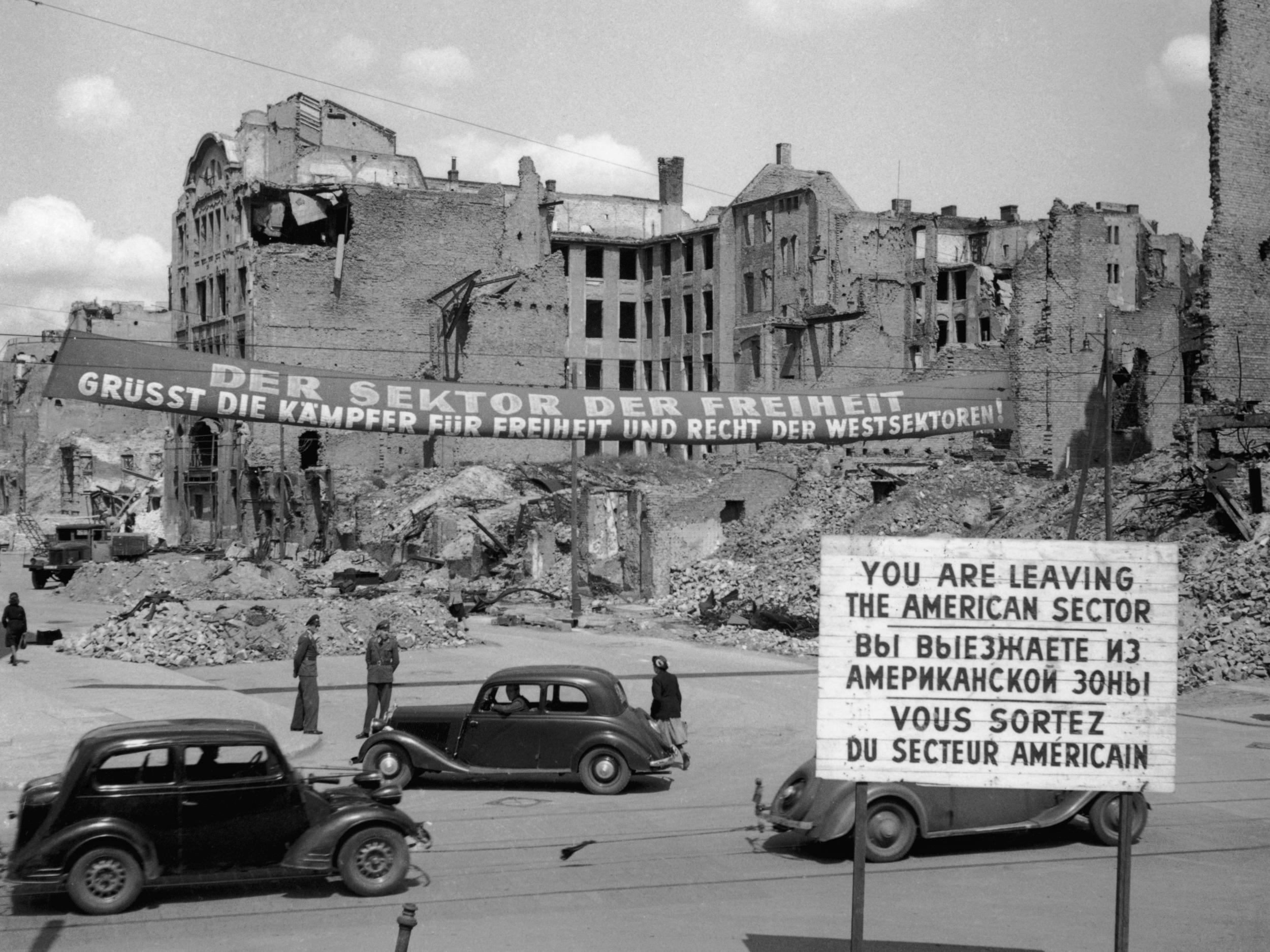
Today Plauen is a good example of how far East Germany has come since reunification, and how far it still has to go. The town centre is spick and span, with lots of shiny new buildings, and lots of renovated old ones too, but there are still lots of bomb sites, left over from the war. Like most German conurbations, East and West, Plauen was heavily bombed by the Allies, and the communist regime had neither the resources nor the desire to restore the damage. While West Germany received financial aid from the Marshall Plan, East Germany was stripped of its assets by the Soviets, who took almost everything they could carry, from machinery to fine art, back to Russia. For East Germans, the war didn’t end in 1945. It dragged on until 1989.
Since 1989, East Germany has had a massive spring clean, and the place that best sums up this rejuvenation is Dresden. When I first went there, in 1995, the “Florence of the Elbe” was under scaffolding. There were lots of empty spaces where rows of houses used to be. The city looked tired and grey. Today, the old baroque landmarks are resplendent, complimented by a host of replica buildings. The ornate skyline that Canaletto painted, seemingly lost forever when the RAF destroyed the city in 1945, is clearly visible again.
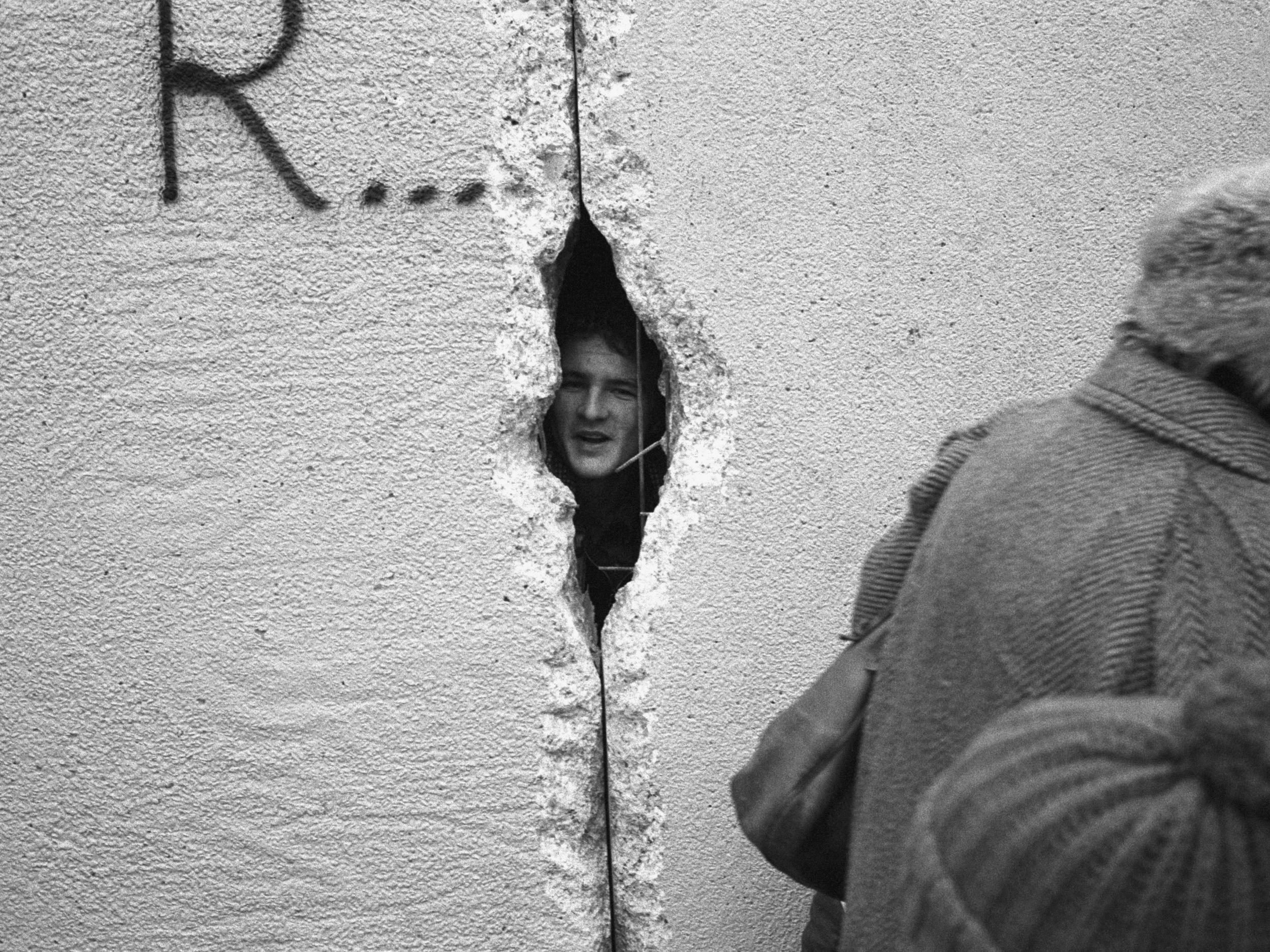
For me, German reunification was the defining event of my journalistic life. My paternal grandparents were both born in what became East Germany, and my father was born there too, in Dresden, during the Second World War. He survived the bombing of Dresden as a toddler, whereupon my grandmother took him to Hamburg to escape the invading Red Army.
In Hamburg, after the war, she met a British officer, a journalist called Gerry Cook, and followed him back to Britain, bringing my father with her (my grandfather was in a British POW camp at the time). Gerry Cook raised my father as his own son (he had no children of his own) and as a child I was seduced by the florid tales he told of his journalistic career. When the Berlin Wall came down I was just starting out as a jobbing journalist. After decades of indifference, British editors and readers were interested in Germany again.
Over the next 30 years I went east countless times, reporting on the other Germany, a land that had been shut away for 40 years. Along the way I found the modest house where my father was born and the Schloss where my grandfather grew up – seized by the communists, who burnt its contents (it’s now a technical college). I saw ancient cities, reduced to rubble during the Second World War and left in ruins by the communists, rising from the ashes in incredible feats of reconstruction. But most of all I met all sorts of people – people who’d been imprisoned in their own country for 40 years, informed on by their neighbours, forced to toe the party line and afraid to speak their minds. Now they were free – free to travel, free to start their own businesses, free to say (or publish or broadcast) what they really thought and felt.
The Bundesrepublik was far from perfect, but it seemed clear that by virtually every measure it was infinitely better than the GDR
Well, that was the way I saw it – and there was some truth in it. The Bundesrepublik was far from perfect, but it seemed clear that by virtually every measure it was infinitely better than the GDR. Travelling between western Germany and eastern Germany during the early 1990s was like surveying the result of an immense experiment, conducted by curious aliens or sadistic gods.
Take a country devastated by war and divide it down the middle, into capitalist and communist spheres. Leave it for 40 years, then lift the lid. The western half had become one of the richest countries in the world, a lively democracy with a dynamic economy and a vibrant cultural scene. The eastern half had become a one-party state, morally and economically bankrupt: a bleak landscape of rundown towns and stagnant industries, policed by a repressive regime that controlled every aspect of its citizens’ lives, including the right to emigrate. Whatever its faults, and there were many, the Bundesrepublik never had to build a wall to prevent its citizens from leaving.
But, as I learnt on my travels, that was only part of it. True, few East Germans wanted to go back to the bad old days of the GDR, but that didn’t mean they were entirely happy with the system that replaced it. Over the 30 years since the Mauerfall, West Germans have ploughed an immense amount of money into Eastern Germany. Brand new infrastructure has been installed – often better than in West Germany. Historic towns and cities have been beautifully restored. And yet something has been lost along the way. The East Germans I met in the early Nineties were glad to be rid of communism, but they were hoping for something different from conventional capitalism: a third way. For a few years this seemed possible, especially in Berlin, but eventually the capitalist system proved all-consuming, as always.
The rhetoric was all about the two Germanies coming together again, but the reality was very different. A new state was not created in 1990. Rather, the East German “Democratic” Republic was dissolved, and its people and its territories joined the West German Federal Republic. The practicalities were unequal, too. The reconstruction of East Germany was paid for by West Germany, so it was inevitable (if regrettable) that West Germany would control the process.
Every public institution in East Germany had been ruled by hardline communists. Some of them were complicit in crimes against their own citizens. It was impossible to reform the system without removing a great many people from their posts. These Soviet lackeys were replaced by West Germans with impeccable liberal credentials, but although their work was sound, for some East Germans it felt like cultural imperialism. Virtually everyone was glad to see the back of all that Soviet propaganda, but in the reconstruction a lot of apolitical paraphernalia was also swept away.
It wasn’t just the top dogs in East Germany who lost their jobs. In Dresden, in 1997, I met a woman who’d been a history teacher in the GDR. Now her career was over and there was no way back. She was retraining as a tour guide. Even the newfound freedoms were a mixed blessing. After reunification, East Germans were allowed to access their Stasi files: the records kept by the East German “state security service” or secret police. I met a man in Dresden who’d read his file. He told me wished he hadn’t. It was 600 pages long, full of information from his friends and neighbours.
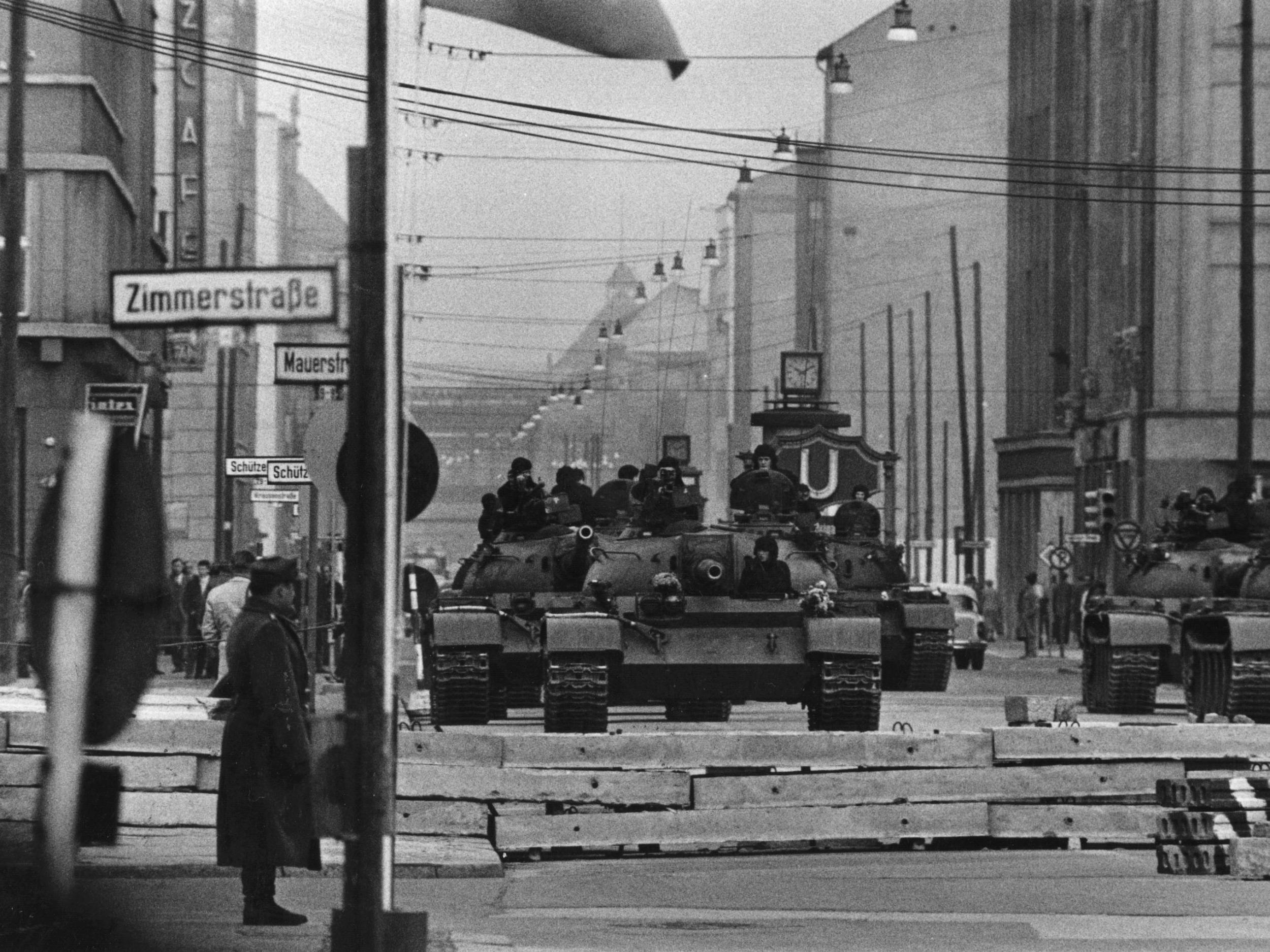
East Germans are far better off today than they were under the GDR, and a lot better off than their EU neighbours in Poland and the Czech Republic. In 1989, East German GDP per capita was around 40 per cent of what it was in West Germany. Now it’s around 80 per cent. In a place where, for 40 years, any form of private enterprise was virtually impossible, this is an economic miracle on a par with the West German postwar Wirtschaftswunder. However, for East Germans it doesn’t feel that way. Those in work are still poorer than their western neighbours, and unemployment is around twice the western rate. In a place where, 30 years ago, the vast majority of jobs were economically unsustainable, that’s an enormous advance, but the poor can’t afford to take a long view. No wonder Germany’s new far right party, Alternative für Deutschland, attracts twice as much support here in the East.
As a visitor, I now find less difference between eastern and western Germany than between northern and southern England – an incredible achievement, given the state of Eastern Germany in 1989. However like visitors to northern England, visitors to Eastern Germany are inclined to get a lopsided view. Like big cities in the North (Leeds, Manchester, Newcastle), the big cities in eastern Germany (Dresden, Leipzig and Berlin) are booming but, as in northern England, it’s a different story in smaller towns. This is where the anti-immigration rhetoric of AfD finds fertile ground.
The biggest divide between winners and losers was age. The younger you were when the wall came down, the more you stood to gain. The older you were, the more you had to lose
But the biggest divide between winners and losers was age. The younger you were when the wall came down, the more you stood to gain. The older you were, the more you had to lose. If you were under 30, with no dependents, it was a fantastic opportunity. You could attend a west German university, then live and work in west Germany, or anywhere in EU.
If you were over 40 when the wall came down, reunification wasn’t such good news. If you had a blue collar job, the factory where you worked was probably about to go out of business. If you had a white collar job, your allegiance to the old regime was now a problem, not an asset. You could give your children a better start in life, but they might not stick around. Many young east Germans left for a better life and never returned.
This was borne out for me when I went back to the house on the outskirts of Dresden where my father was born. The family which lives there now arrived soon after the Second World War, German refugees from further east, from German lands seized by Stalin. The first time I went there, in the 1990s, they seemed happy and hopeful. When I went back, in the Noughties, they seemed sad and out of sorts. Their house was a lot smarter, full of the latest mod cons, but their children had gone, to work and study in the west.
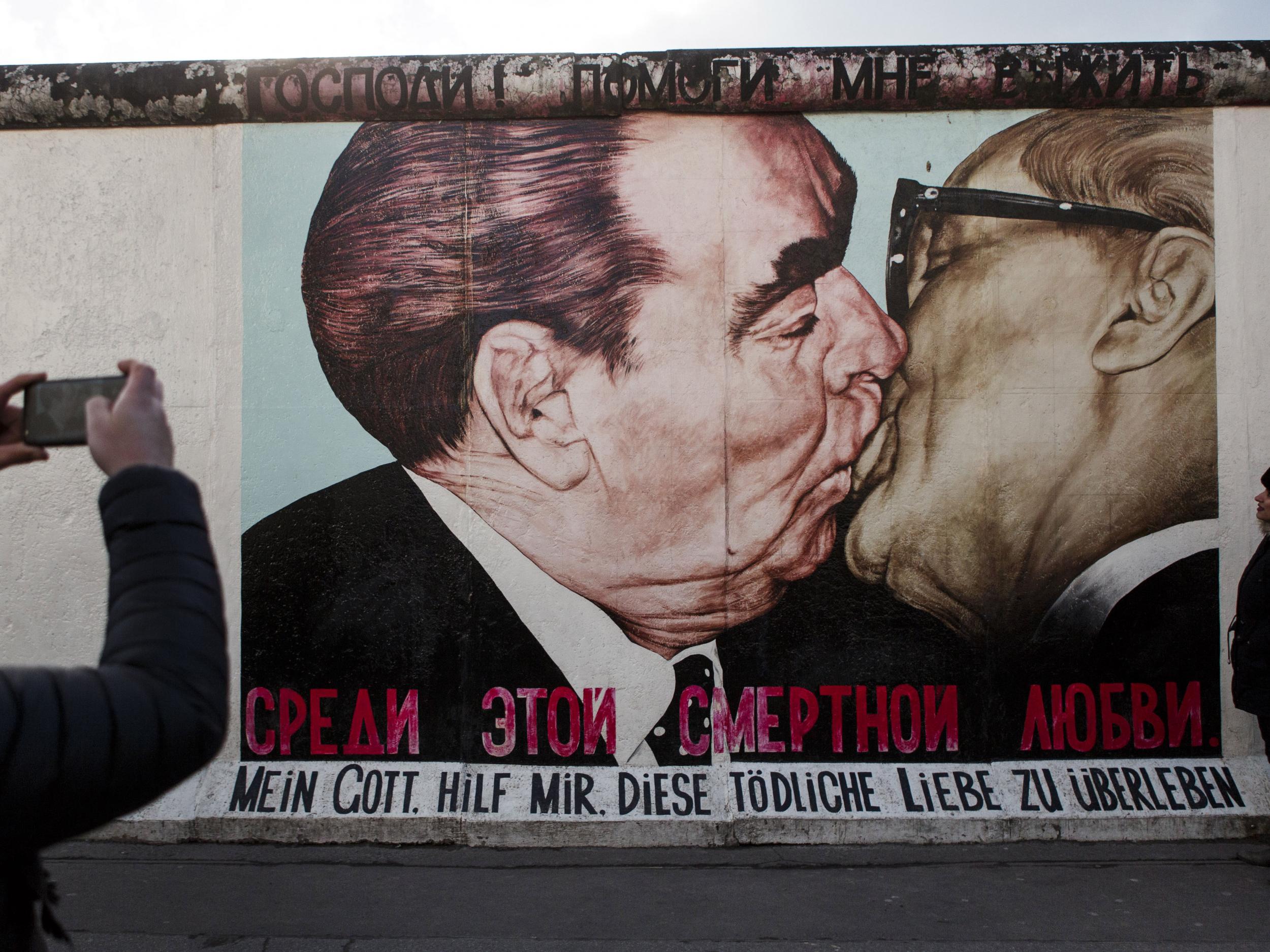
I finished my recent journey back in Berlin, talking to two East Germans who risked their lives to escape to West Germany during the Cold War. I asked them how they felt now, 30 years since the Mauerfall. Had East Germany changed for the better? Was reunification a success?
Stephan Giering grew up in East Berlin. His father was a Catholic theologian, his mother was a strict communist. He always wanted to be a journalist, but the newspaper he produced at school was criticised by the authorities for its subversive tendencies. When he learnt he would not be allowed to advance to high school, he fled to West Germany via Czechoslovakia, Hungary and Austria. He was just 16. That was in October 1989. The wall came down a month later. “It was good to have the unification, because it’s normal that one nation would like to live in one country,” he tells me, with intense sincerity. “The challenge is that the German nation finds inner peace.”
Peter Barsch, an ebullient East Berliner, also tried to escape to West Germany when he was 16. “I had trouble at school because I was like Stephan – asking all the wrong questions all the time,” he tells me. “I was never really scared of the GDR. To me they were like clowns. I despised them.” He was caught, and sent to prison for two years. In 1978, when he was 20, he tried again. He wanted to see Paris. This time he succeeded – escaping to West Berlin by swimming across the River Spree. “It was not a whole country, there was always something missing,” he says, of his years of exile in West Germany. “If you leave your home and you cannot go back, you’ve paid something for your freedom. There was an emotional cost.”
Before the Berlin Wall came down, Peter felt a sense of separation in the west. He never regretted his decision, but he felt homesick for his friends and family in the east. He went to London, where he worked as a maintenance man and met his first girlfriend, a French woman, who took him to France. There he met an American woman who became his wife. They were living in California when the wall came down. At first he couldn’t believe it. Then he cried. Then he booked a flight back to Berlin. Now he’s living in Germany again. “Germany’s much better than it was, but it’s always something you work on – it’s not done yet. It’s not totally one country yet.”
So what does the future hold for the next generation of East Germans? Despite the rise of AfD I remain incurably optimistic. With each passing year the gap between west and east is closing as the East German economy grows stronger. But it’s not just about the money, it’s about quality of life. For me, two places, both in Leipzig (a filthy city under the GDR) sum up the East German renaissance – an old cotton mill and a cluster of open cast mines. Now that old cotton mill, the Spinnerei, has become a lively arts centre, and those ugly mines have been flooded and transformed into bucolic lakes.
And what about the man whose question sparked the revolution? How does he feel about the way things have turned out? “I can understand that the people are impatient,” Peter Brinkmann tells me, “but most of them are happy to live in a democracy.” An older generation of East Germans were left behind by reunification, but 30 years from now there’ll be nobody under 70 who can recall what it was like to live in the German “Democratic” Republic. Maybe then, and only then, will Germany be truly reunited.
For more information about Germany, visit www.germany.travel
Join our commenting forum
Join thought-provoking conversations, follow other Independent readers and see their replies
Comments
Bookmark popover
Removed from bookmarks